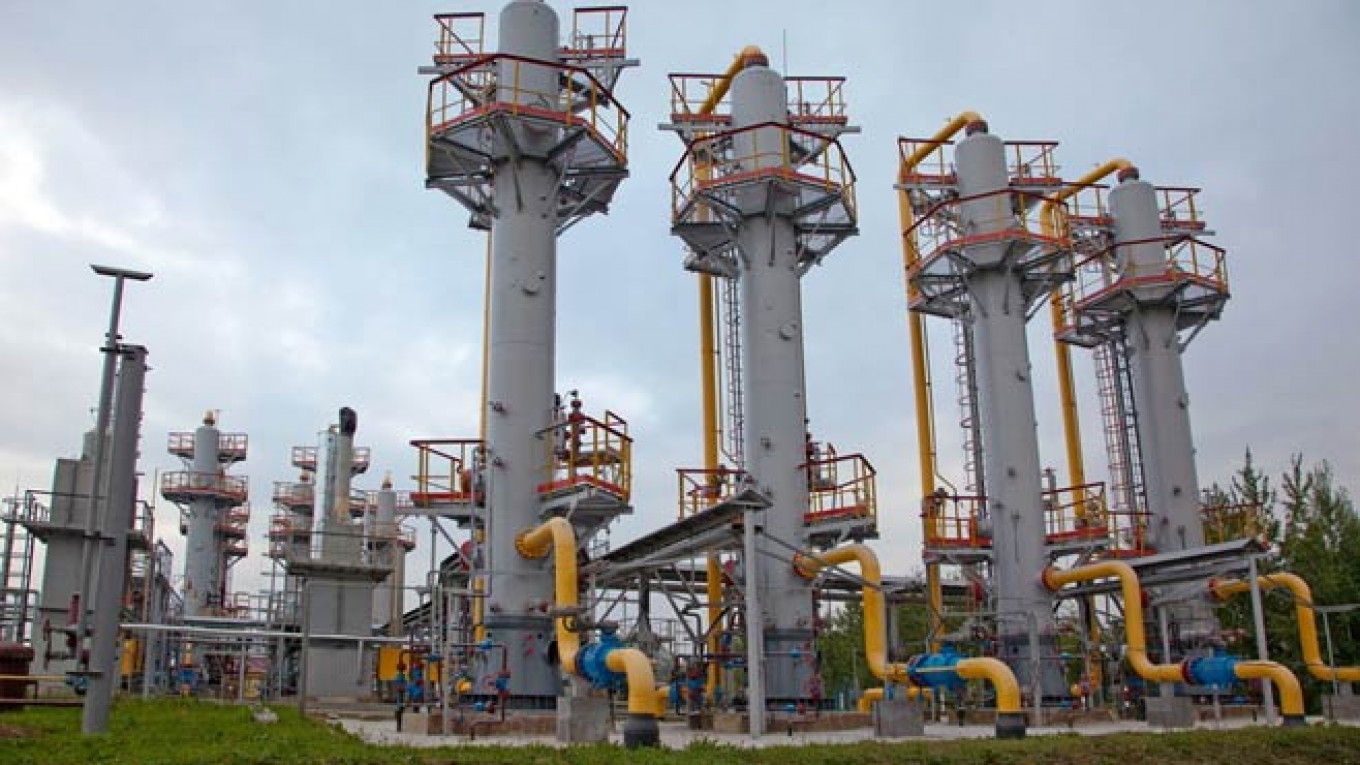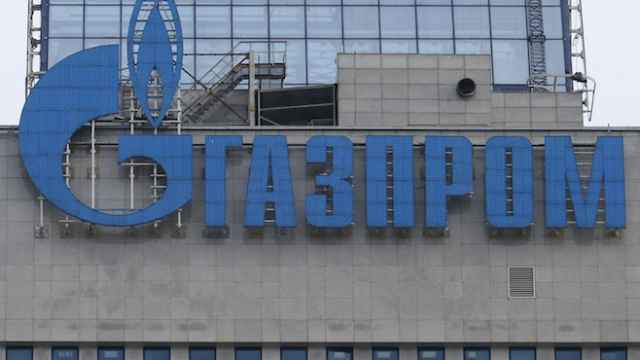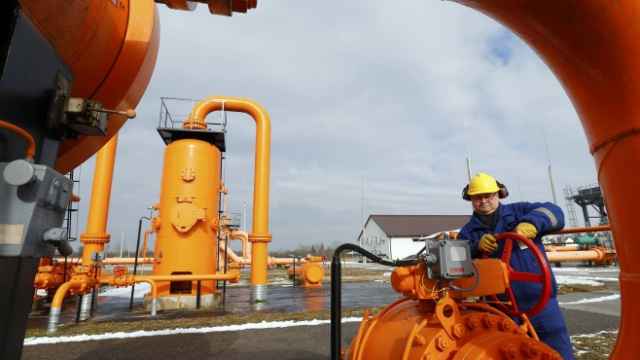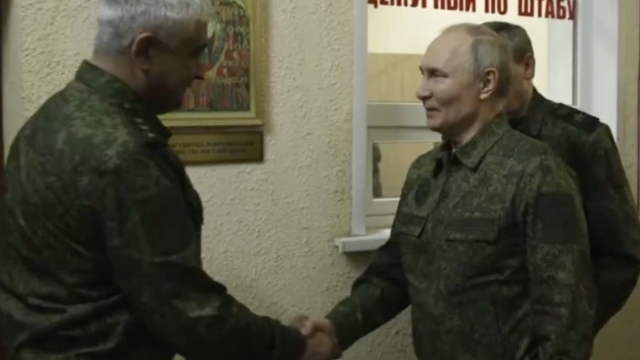Russia may ease the terms of its gas supplies to Ukraine, but Kiev will have to pay for the gas Moscow is supplying to rebel-held areas of east Ukraine, Russian Energy Minister Alexander Novak said.
A supply deal for the winter expires on March 31, along with a discount of $100 per 1,000 cubic meters of gas and a suspension of a take-or-pay requirement.
Novak said in an interview that Russia was open to prolonging those concessions even without a new deal, which has been referred to as a "summer package," for the period after March 31.
"A discount is possible under the contract as well. No separate [summer] packages are needed if Ukraine and Russia reach an agreement. Take-or-pay [suspension] … is also possible, it depends on the talks between companies," Novak said.
Russia and Ukraine have clashed over pricing and unpaid gas bills, with the Russians halting supply three times over the past decade, including a stoppage for much of the second half of 2014.
If Moscow and Kiev fail to settle their most recent dispute, supplies to the European Union could potentially be disrupted as gas for EU countries is piped across Ukraine, although there was no such impact during last year's stoppage.
A crisis was averted on Friday, when Gazprom received $15 million from Ukrainian state energy firm Naftogaz for gas supplies to last until March 15.
Gazprom's gas shipments to Ukraine are governed by a 2009 contract that runs until 2019, but within that some terms can be adjusted.
Novak said that if the gas price is $330 or more per 1,000 cubic meters in the second quarter, then the maximum discount for Kiev could be $100. If the price is lower, the discount would be not more than 30 percent of the price. The price for the second quarter could be in the range of $350-$360 with no discount, he said.
That compares to $329 for the current quarter.
Novak said that gas for rebel-held east Ukraine is supplied at the same price that Naftogaz pays for supplies to the rest of Ukraine.
The minister said Kiev would have to settle its bills for supplies to the east.
"We are supplying [east Ukraine] under the [2009] contract. Gazprom doesn't ship for free. Bills, invoices are being prepared," Novak said.
"There is no clarity yet on how debts for supplies to east Ukraine will be settled. … Maybe via an arbitration court, maybe via negotiations."
On gas exports further afield, Novak said Russia would ship as much gas to Europe in 2015 as it did last year. In 2014, Gazprom exported 147 billion cubic meters to Europe and Turkey, where it generates more than half of its revenues.
Novak said volumes last year were unusually low because of mild weather, and should be higher in 2015.
Pipelines
Russia has a long-term goal of bypassing Ukraine as a transit country. It ships around 40 percent of its gas to Europe via Ukraine, while the rest goes via Belarus, Moldova, the Nord Stream subsea pipeline to Germany and the Blue Stream subsea pipeline to Turkey.
In December last year it canceled plans to build the South Stream gas pipeline under the Black Sea to Bulgaria and onwards into southeast Europe.
It is now planning an alternative export route, unofficially called Turkish Stream, with a capacity of 63 bcm per year.
Instead of extending the pipeline further to Europe, Gazprom now plans to sell its gas at a hub on the Turkish-Greek border, requiring those European countries who want access to the gas to build links to the hub.
"Now counties should be building [onshore links] on their own. The routes could be different — they may come to Italy if they want. This is not our business anymore," he said.
Novak added that the costs of the offshore parts of Turkish Stream would be "comparable" to those of the South Stream project. The budget to build the offshore section of South Stream was previously estimated at up to 17 billion euros [$18.3 billion].
Russia is also planning to ramp up gas exports to Asia to reduce its reliance on sales to Europe.
Russia plans to ship gas to China via two yet-to-be-built pipelines: Power of Siberia, supplied exclusively by two Siberian gas fields, and Altai, which is to connect the Russian gas pipeline system from West to East.
Russia and China reached agreement on the Power of Siberia pipeline last May. Novak said he hoped for a firm contract for Altai in the first half of this year.
"These [two] projects are not linked to each other. … [The contract signed last May] will be implemented irrespective of whether Altai happens or not," Novak said.
He added that Russia was sticking to plans to deliver its first gas to China via Power of Siberia at the end of 2018 or start of 2019. Russia and China are not discussing a prepayment or loan for the Power of Siberia project anymore, he said.
A Message from The Moscow Times:
Dear readers,
We are facing unprecedented challenges. Russia's Prosecutor General's Office has designated The Moscow Times as an "undesirable" organization, criminalizing our work and putting our staff at risk of prosecution. This follows our earlier unjust labeling as a "foreign agent."
These actions are direct attempts to silence independent journalism in Russia. The authorities claim our work "discredits the decisions of the Russian leadership." We see things differently: we strive to provide accurate, unbiased reporting on Russia.
We, the journalists of The Moscow Times, refuse to be silenced. But to continue our work, we need your help.
Your support, no matter how small, makes a world of difference. If you can, please support us monthly starting from just $2. It's quick to set up, and every contribution makes a significant impact.
By supporting The Moscow Times, you're defending open, independent journalism in the face of repression. Thank you for standing with us.
Remind me later.






